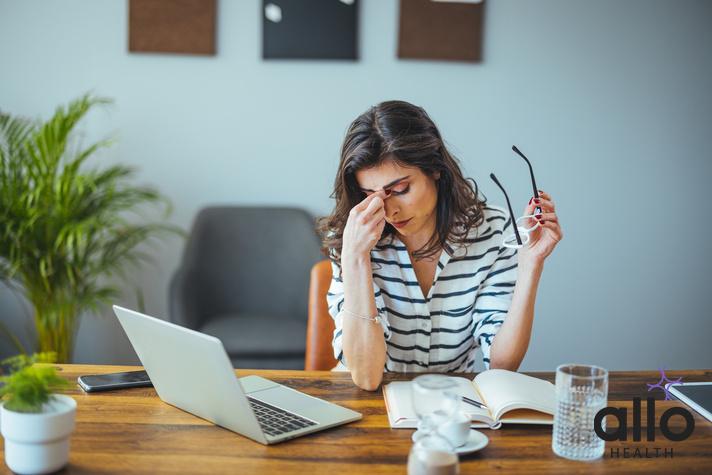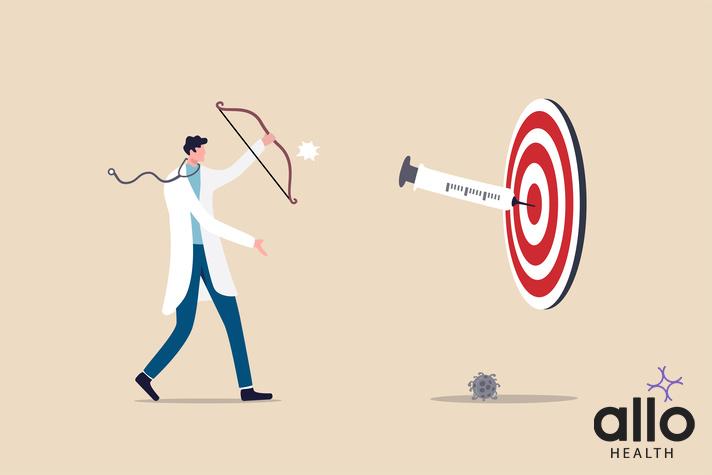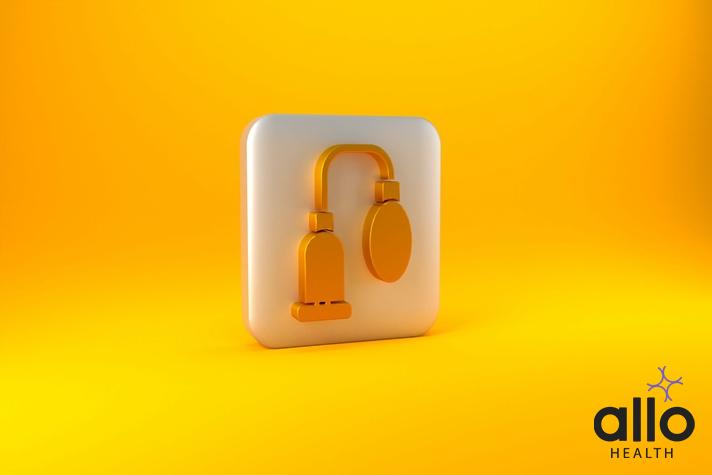Knowing How To Masturbate For Boys

Allo Health is dedicated to personalized well-being, offering support and trusted information tailored to individual health goals. The platform emphasizes human-generated content, led by a distinguished medical team of experts, including physicians and sexual health specialists. Their commitment to credibility involves rigorous fact-checking, authoritative research, and continuous updates to ensure accurate, up-to-date information. Allo Health's unique approach goes beyond conventional platforms, providing expert-led insights and a continuous commitment to excellence, with user feedback playing a crucial role in shaping the platform's authoritative voice.

Dr.Sushma.V completed MBBS degree from BGS GIMS,bangalore
Why This Was Upated?
Our experts continually monitor the health and wellness space, and we update our articles when new information became available.
Updated on 16 March, 2024
- Article was updated as part of our commitment to diversity, equity, and inclusion.

"The following blog article provides general information and insights on various topics. However, it is important to note that the information presented is not intended as professional advice in any specific field or area. The content of this blog is for general educational and informational purposes only.
Book consultation
The content should not be interpreted as endorsement, recommendation, or guarantee of any product, service, or information mentioned. Readers are solely responsible for the decisions and actions they take based on the information provided in this blog. It is essential to exercise individual judgment, critical thinking, and personal responsibility when applying or implementing any information or suggestions discussed in the blog."
Embarking on the journey of self-discovery is a natural part of adolescence for boys. Understanding how to masturbate safely and effectively is crucial for their physical and emotional well-being. This guide provides essential insights into the techniques, precautions, and exploration of pleasure, promoting a healthy relationship with one’s body and sexuality. With clear instructions and supportive advice, boys can navigate this aspect of their development with confidence and self-awareness, fostering a positive understanding of their sexual identity and desires.
Why Masturbation is Normal and Healthy for Boys

- Normal Development: Masturbation is a natural part of human sexuality, commonly practiced by boys during puberty.
- Exploration and Pleasure: It allows boys to explore their bodies, understand their desires, and experience sexual pleasure in a safe and private way.
- Stress Relief: Masturbation can help alleviate stress, anxiety and tension by triggering the release of feel-good hormones like endorphins and oxytocin.
- Prostate Health: Regular ejaculation through masturbation may reduce the risk of prostate cancer by flushing out potentially harmful substances.
- Educational: It can be a valuable tool for learning about arousal, ejaculation control, and sexual response, aiding in future sexual experiences.
- Safe and Private: Masturbation is a safe and private activity that does not pose any physical or emotional harm when practiced in moderation.
- Communication: Encouraging open communication about masturbation can help boys feel more comfortable and confident about their sexuality.
Understanding the Male Anatomy: A Guide to Pleasure Points
- Introduction to Male Anatomy: Overview of the male reproductive system, including key organs like the penis, testes, and prostate gland.
- Penis Pleasure Points: Explanation of sensitive areas on the penis, such as the glans, frenulum, and shaft, and how they contribute to arousal and pleasure.
- Testicular Stimulation: Discussion on the sensitivity of the testicles and techniques for gentle stimulation to enhance pleasure.
- Prostate Exploration: Insight into the prostate gland, its role in male pleasure, and methods for prostate massage or stimulation.
- Erogenous Zones Beyond: Exploration of other erogenous zones on the male body, such as the nipples, perineum, and anus, and how they can intensify sexual experiences.
- Communication and Consent: Emphasis on the importance of communication and mutual consent in exploring and understanding male pleasure.
The Benefits of Masturbating: Physical and Mental Health Advantages

- Stress Relief: Masturbation triggers the release of endorphins, dopamine, and oxytocin, which promote feelings of relaxation and happiness.
- Better Sleep: The release of tension and relaxation induced by masturbation can improve sleep quality and help with insomnia.
- Pain Relief: Masturbation can alleviate menstrual cramps, headaches, and muscle tension by releasing endorphins, which act as natural painkillers.
- Improved Mood: Masturbation can boost mood by reducing levels of cortisol, the stress hormone, and increasing levels of serotonin, promoting a sense of well-being.
- Sexual Satisfaction: Regular masturbation can enhance sexual pleasure by increasing awareness of one’s own body and preferences.
- Sexual Health: Masturbation can help maintain healthy sexual function by promoting blood flow to the genitals and reducing the risk of erectile dysfunction.
- Self-Exploration: Masturbation allows individuals to explore their bodies, desires, and sexual responses without pressure or judgment.
- Relationship Benefits: Masturbation can improve communication and intimacy within relationships by helping partners understand their own and each other’s sexual preferences.
- Prostate Health: For individuals with prostates, regular ejaculation through masturbation may reduce the risk of prostate cancer by flushing out toxins and promoting healthy prostate function.
Overcoming Shame and Guilt Associated with Masturbation
- Normalize the Practice: Understand that masturbation is a natural and healthy part of human sexuality.
- Educate Yourself: Learn about the physical and mental health benefits of masturbation.
- Challenge Negative Beliefs: Question societal or religious teachings that promote shame around self-pleasure.
- Practice Self-Compassion: Replace self-criticism with self-acceptance and kindness.
- Seek Support: Discuss feelings of shame and guilt with trusted friends, therapists, or support groups.
- Explore Your Own Pleasure: Experiment with different techniques and explore what feels good for you.
- Set Boundaries: Establish personal boundaries to protect your privacy and comfort.
- Focus on Consent: Remind yourself that masturbation is a consensual act that harms no one.
- Celebrate Self-Expression: Embrace effects of masturbation as a form of self-love and self-care. Use prostate massagers or prostate stimulators for pleasure.
- Choose a quiet and private space where you feel relaxed and comfortable.
- Set the mood with soft lighting, such as candles or dim lamps, to create a soothing atmosphere.
- Play calming music or white noise to drown out any distractions and help you focus on yourself.
- Prepare your surroundings by ensuring everything you might need is within reach, such as lubricant, tissues, or toys.
- Take a few deep breaths to center yourself and release any tension or stress.
- Experiment with different positions and techniques to discover what feels best for you.
- Use visualization or erotica to enhance arousal and stimulate your imagination.
- Take your time and explore your body with curiosity and self-compassion.
- Afterward, engage in self-care activities like hydrating, stretching, or journaling to nurture your well-being.
Exploring Different Techniques: Hand Strokes, Toy Play and More

- Hand Strokes:
- Experiment with varying pressure and speed for different sensations.
- Incorporate techniques like swirling, tapping, and squeezing for added pleasure, or try anal stimulation (can use anal beads for pleasure).
- Communicate with your partner to discover what feels best for them.
- Toy Play:
- Explore a variety of sex toys such as vibrators, dildos, and strokers.
- Experiment with different sizes, shapes, and textures to find what works for you.
- Incorporate toys into solo play or with a partner for enhanced pleasure and intimacy.
- Other Techniques:
- Explore edging to build anticipation and intensify orgasms.
- Incorporate massage techniques for full-body arousal and relaxation.
- Experiment with temperature play using ice cubes or warm oils for added sensory stimulation.
- Don’t be afraid to try new things and communicate openly with your partner about desires and boundaries.
Tips for Experimenting Safely and Responsibly
- Communication is Key: Discuss desires, boundaries, and expectations openly with your partner(s) before experimenting.
- Start Slow: Begin with small experiments and gradually progress to more adventurous activities as comfort and trust grow.
- Use Protection: Always prioritize safer sex practices, including condoms, dental dams, and lubrication, to reduce the risk of STIs and unintended pregnancy.
- Establish Safe Words: Agree on clear signals to communicate discomfort or the need to stop immediately.
- Check-In Regularly: Take breaks during experimentation to assess comfort levels and ensure everyone involved feels respected and valued.
- Respect Boundaries: Honor each other’s limits and never pressure anyone into activities they’re not comfortable with.
- Reflect and Adjust: After experimenting, discuss what worked well and what didn’t, and make adjustments for future encounters.
How Often Should You Masturbate? Finding a Healthy Balance
- Frequency Considerations:
- There’s no one-size-fits-all answer; it varies based on individual preferences and needs.
- Listen to your body’s cues and desires without judgment or pressure.
- Healthy Balance:
- Aim for a frequency that allows you to enjoy masturbation without it interfering with daily life.
- Avoid using masturbation as a coping mechanism for stress or emotional concerns.
- Benefits of Moderation:
- Masturbation can have positive effects on mood, stress levels, and overall well-being.
- However, excessive masturbation can lead to physical discomfort or mental exhaustion.
- Communication and Exploration:
- Openly communicate with partners about your masturbation habits and how they impact your sexual relationship.
- Explore different frequencies and rituals to find what works best for you while maintaining a healthy balance.
Common Myths about Male Masturbation Debunked
- Frequency Equals Dysfunction: Contrary to belief, frequent masturbation is normal and healthy for most men, not a sign of dysfunction.
- Hair Loss Connection: Masturbation does not cause hair loss. This myth likely stems from misconceptions about testosterone levels.
- Sexual Exhaustion: Masturbation does not lead to sexual exhaustion, or sexual dysfunction or concerns with performance. It’s a natural part of sexual expression.
- Size Concerns: Masturbation does not affect penis size. Size is primarily determined by genetics and development.
- Mental Health Impact: Masturbation is not linked to mental health concerns. In fact, it can be a healthy way to relieve stress and improve mood.
- Addiction: While excessive masturbation can occur, it’s not inherently addictive like drugs or alcohol. Most people can regulate their habits without issue.
- Fertility Concerns: Masturbation does not typically impact fertility negatively. Sperm are continuously produced, and regular or excess of ejaculation (ejaculation frequency) can actually improve sperm quality.
The Role of Fantasy in Male Masturbation
- Fantasy plays a crucial role in male masturbation, often serving as a catalyst for arousal and pleasure.
- It allows individuals to explore their desires, fantasies, and preferences in a safe and private space.
- Fantasies can range from imagining specific scenarios, partners, or enhanced experiences to exploring different sexual roles or dynamics.
- Fantasy can enhance arousal by providing mental stimulation, increasing excitement and intensity during masturbation.
- It can also help individuals discover new fantasies or desires they may not have been aware of previously.
- Fantasy allows for experimentation and creativity, encouraging individuals to explore their sexuality in diverse ways.
- It’s a natural and healthy part of sexuality, offering a means for self-expression and fulfillment.
- However, it’s essential to ensure fantasies align with personal values and boundaries, respecting oneself and others in the process.
Maximizing Pleasure: Tips for Achieving Intense Orgasms
- Communication: Open, honest communication with your partner about desires and boundaries is key.
- Foreplay: Extend foreplay to build arousal and enhance the intensity of orgasms.
- Experimentation: Try new techniques, positions, and sensations to discover what works best for you.
- Focus on Clitoral Stimulation: The clitoris is often the key to intense orgasms for many individuals. Experiment with different techniques, such as oral sex, manual stimulation, or sex toys.
- Explore G-Spot Stimulation: Discovering and stimulating the G-spot can lead to powerful, full-body orgasms for some individuals. Experiment with different angles and pressures.
- Incorporate Kegel Exercises: Strengthening pelvic floor muscles through Kegel exercises can lead to more intense orgasms and greater control over climax.
- Mindfulness and Relaxation: Practicing mindfulness and relaxation techniques can help reduce anxiety and increase pleasure during sexual activity.
- Experiment with Edging: Edging involves bringing yourself or your partner to the brink of orgasm and then backing off, repeatedly, before finally allowing release. This can lead to incredibly intense orgasms.
- Explore Tantric Practices: Tantric sex techniques focus on prolonging pleasure and building energy throughout the entire body, leading to heightened orgasms and deeper connections with your partner.
How to Clean Up After a Solo Session: Hygiene Tips
- Prep Your Space: Lay down a towel or use tissues for easy cleanup.
- Wash Your Hands: Start with clean hands before and after.
- Dispose Properly: Dispose of tissues or any other materials in a hygienic manner.
- Clean Surfaces: Wipe down any surfaces you’ve touched with disinfectant wipes.
- Shower or Wash: Rinse off any bodily fluids in the shower or with warm water.
- Change Linens: If necessary, change bedsheets or any other fabrics that may have come into contact.
- Stay Hydrated: Drink water to flush out toxins and maintain overall hygiene.
Talking to Your Partner About Your Masturbation Habits
- Establish trust: Approach the topic in a comfortable and private setting.
- Normalize the conversation: Acknowledge that masturbation is a natural aspect of human sexuality.
- Share your perspective: Be open about your habits and feelings surrounding masturbation.
- Listen actively: Encourage your partner to express their thoughts and feelings without judgment.
- Discuss boundaries: Agree on boundaries and expectations regarding solo sexual activity within the relationship.
- Explore together: Consider incorporating mutual masturbation into your sexual repertoire if both partners are comfortable.
- Reassure each other: Emphasize that masturbation habits don’t diminish love or attraction within the relationship.
Seeking Professional Help: When to Consult a Doctor about Sexual Health Concerns
- Recognizing Signs: Persistent conditions like erectile dysfunction, low libido, or pain during sex warrant attention.
- Communication Breakdown: Difficulty discussing concerns with a partner may indicate the need for professional guidance.
- Physical Symptoms: Unexplained genital sores, unusual discharge, or discomfort merit medical evaluation.
- Mental Health Impact: Anxiety, depression, or trauma affecting sexual well-being require therapeutic intervention.
- Reproductive Challenges: Infertility or difficulty conceiving may necessitate specialized assistance.
- LGBTQ+ Considerations: Unique sexual health needs may benefit from inclusive and knowledgeable healthcare providers or sex therapist.
- Preventive Care: Regular check-ups promote early detection and treatment of sexual health concerns.
Most Asked Questions
-
What is Masturbation?
Masturbation involves stimulating the genitals for sexual pleasure, often leading to orgasm. It's a natural and healthy part of sexual exploration.
-
How Do I Start Masturbating?
Experiment with different techniques, such as using your hand or a lubricant, and find what feels good. Start slowly and explore your body's responses.
-
Is It Normal to Masturbate?
Yes, it's completely normal and common for boys to masturbate. It's a safe way to explore your sexuality and relieve sexual tension.
-
Can Masturbation Cause Harm?
Masturbation is generally safe, but excessive or rough masturbation can lead to irritation or injury. Listen to your body and take breaks if needed.
-
What if I Feel Guilty or Ashamed?
It's common to feel some guilt or shame about masturbation due to societal or cultural beliefs. Remember that it's a natural activity, and seeking support from trusted individuals or therapists can help alleviate these feelings.






































